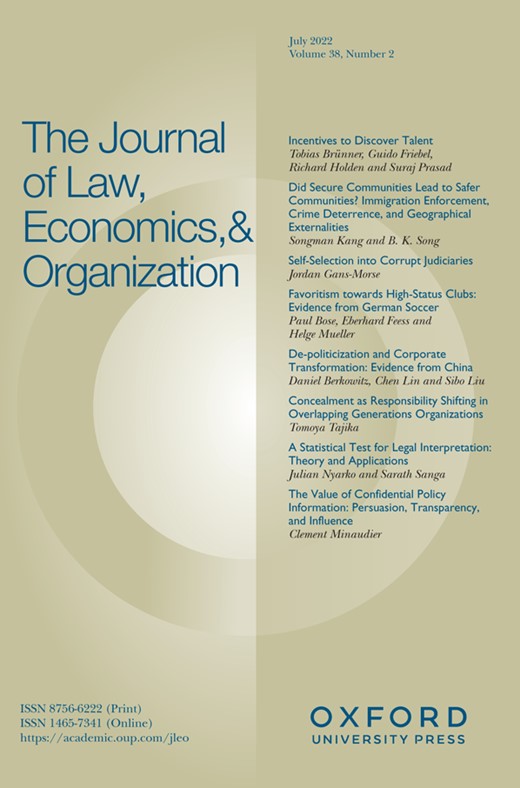-
Views
-
Cite
Cite
Daniel Berkowitz, Chen Lin, Sibo Liu, De-politicization and Corporate Transformation: Evidence from China, The Journal of Law, Economics, and Organization, Volume 38, Issue 2, July 2022, Pages 479–510, https://doi.org/10.1093/jleo/ewab007
Close - Share Icon Share
Abstract
It is well understood that when firms receive favorable treatment from the government because of their political connections and not necessarily their economic merits, they may operate inefficiently while enjoying market advantages over their unconnected peers. However, just how firms respond to the sustained removal of their political connections has not been carefully studied. This article evaluates an unanticipated reform in China that removed government-related personnel from independent directorships of publicly listed companies. Our evidence indicates that treated firms experienced a temporary increase in their cost of debt, but invested more in R&D, imported more machinery, and became more productive and transparent. These adjustments counterbalanced the negative value effect from the financial markets when the regulation was first announced (JEL G38, P26, K20).



